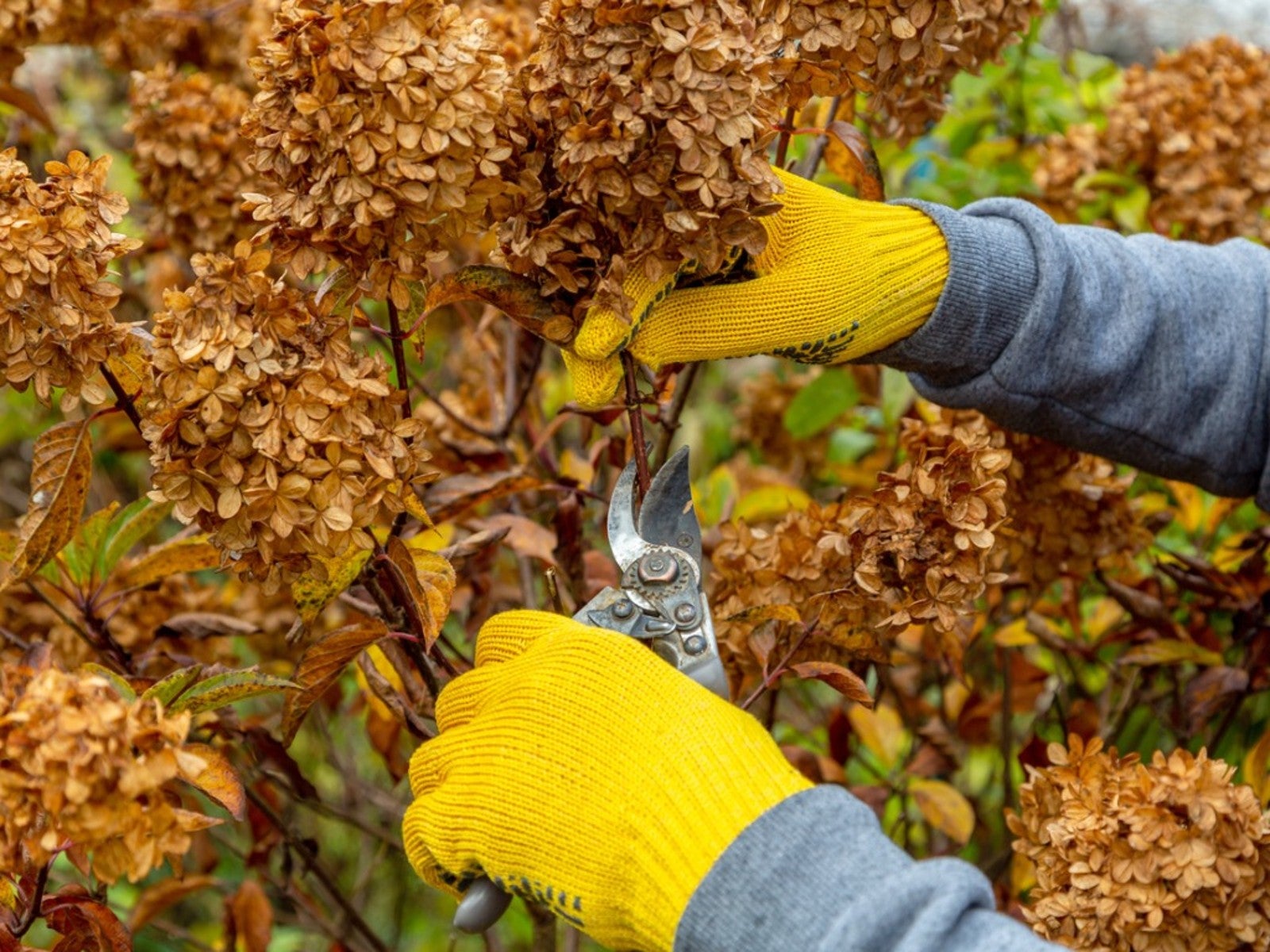Tips For Pruning Hydrangea Trees In The Landscape
Panicle cultivar tree hydrangeas are beautiful shrubs that can grow into small trees. Prune them in early spring before their new growth begins.


Once you’ve had a hydrangea in the landscape, it’s hard to imagine the garden without these versatile workhorse shrubs. One of the most popular hydrangeas is panicle hydrangea (Hydrangea paniculata) that can grow into a small, flowering tree.
Like all hydrangeas, popular panicle cultivars like Pee Gee and Limelight are fairly low maintenance in the backyard. However, pruning is recommended to keep them looking tidy and compact. Don’t do it wrong or you may lose all of the flowers for the year. Read on for tips on how to trim a hydrangea tree.
Pruning a Hydrangea Tree
Panicle hydrangea is a flowering shrub that, left to its own devices, will grow to 25 feet (8 m.) tall and almost as wide in an irregular vase shape. The creamy white summer flowers are exceptionally showy to the point of being spectacular. They appear in panicles of blossoms some 6-8 inches (15-20 cm.) long. As summer wanes, the petals fade to a pink-purple shade.
The tree has upright, spreading branches that appear “weeping” as they are weighted down by the blossoms. Many gardeners opt to deadhead the faded flowers and clip off the brown fruits to keep the plant looking shapely. It’s important to get the timing right to avoid a blossom-less hydrangea the following summer.
When to Prune a Hydrangea Tree
If you decide to go ahead and prune your Limelight into a neat shape, the time to act is early spring, before the plant’s spring growth begins. That’s very important given the panicle hydrangea’s growth pattern.
This species of hydrangea sets its flowers on new wood, that is, wood produced in spring of the same year rather than the wood that grew in the prior autumn. You are therefore safe to prune right up through the time the panicle tree hydrangea starts growing again in spring. Pruning after that will remove the newly set flower buds and result in fewer blossoms – or none! – that summer.
How to Prune a Hydrangea Tree
Pruning a ‘Limelight’ hydrangea tree or any other panicle hydrangea tree, you don’t have to act too gently or too conservatively. These are tough, resilient plants that love to push out new growth whether or not a trim was perfectly accomplished. On the other hand, the idea is to keep this beautiful, reliable hydrangea looking like a tree, not to try to turn it into a shrub.
Sign up for the Gardening Know How newsletter today and receive a free copy of our e-book "How to Grow Delicious Tomatoes".
Start with the basic housecleaning type of pruning, removing sucker shoots that grow in around the plant base, then trim off any shoots appearing on the lower part of the trunk. A hydrangea tree looks best with one trunk, a trunk that is bare up to where the canopy begins.
At the canopy, work branch by branch, clipping each to leave only two or three sets of bud nodes. This will prevent overly long branches that end and even break as the big flowers appear on the branch tips.
At the same time, look for spots where there are several branches coming from the same area on the trunk and crowding each other Cut one right back at the main trunk. Finally, look for small branches heading straight up or toward the inside of the canopy. Cut those back to the trunk or main branch from which they are growing.

Teo Spengler is a master gardener and a docent at the San Francisco Botanical Garden, where she hosts public tours. She has studied horticulture and written about nature, trees, plants, and gardening for more than two decades, following a career as an attorney and legal writer. Her extended family includes some 30 houseplants and hundreds of outdoor plants, including 250 trees, which are her main passion. Spengler currently splits her life between San Francisco and the French Basque Country, though she was raised in Alaska, giving her experience of gardening in a range of climates.